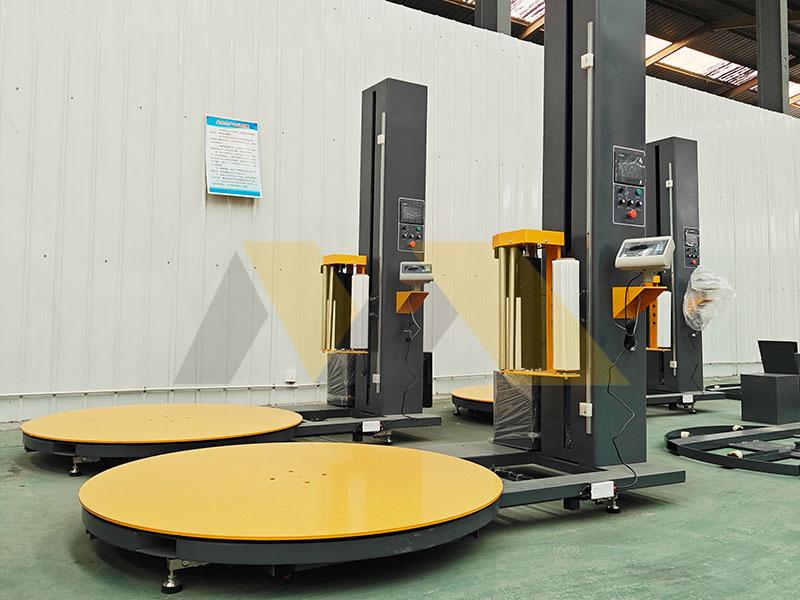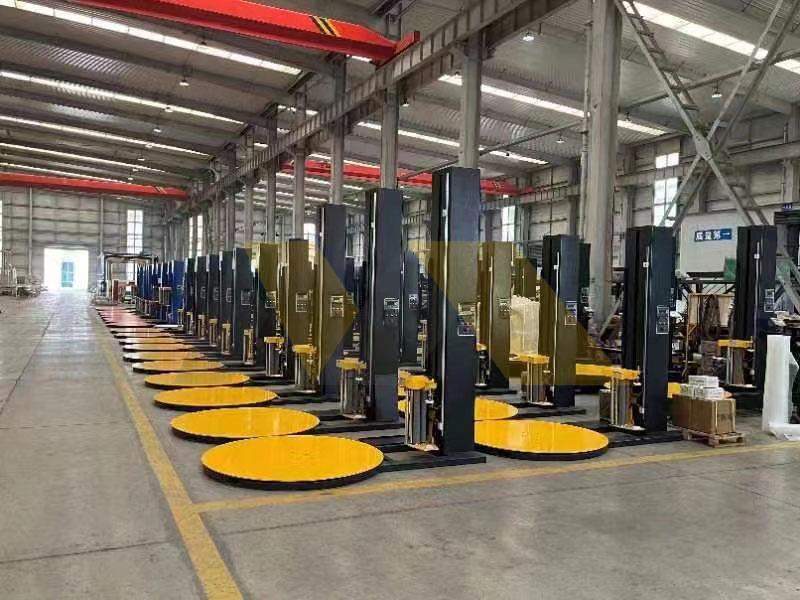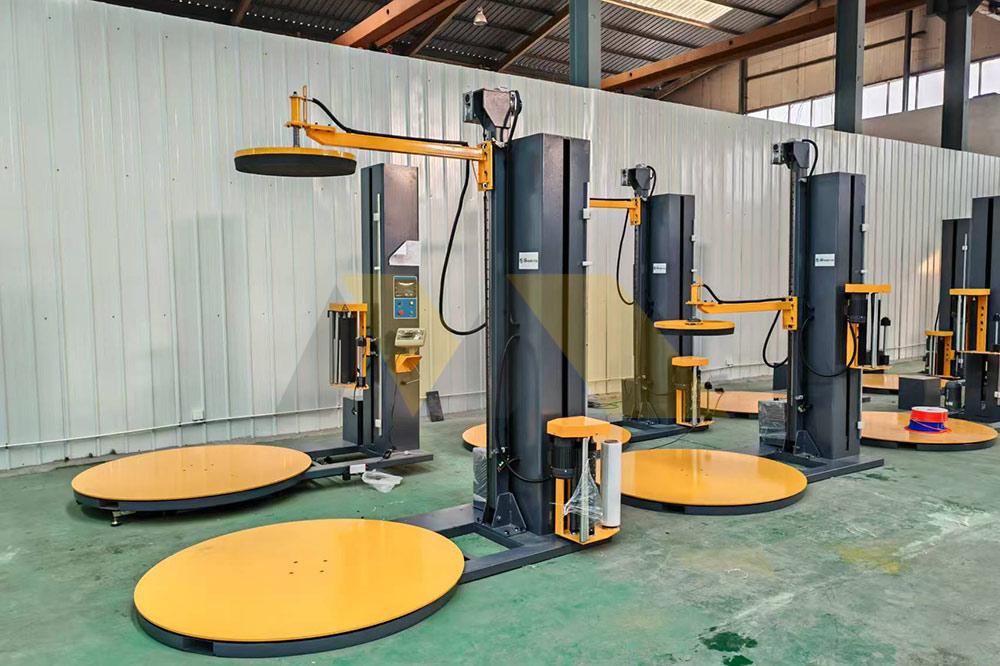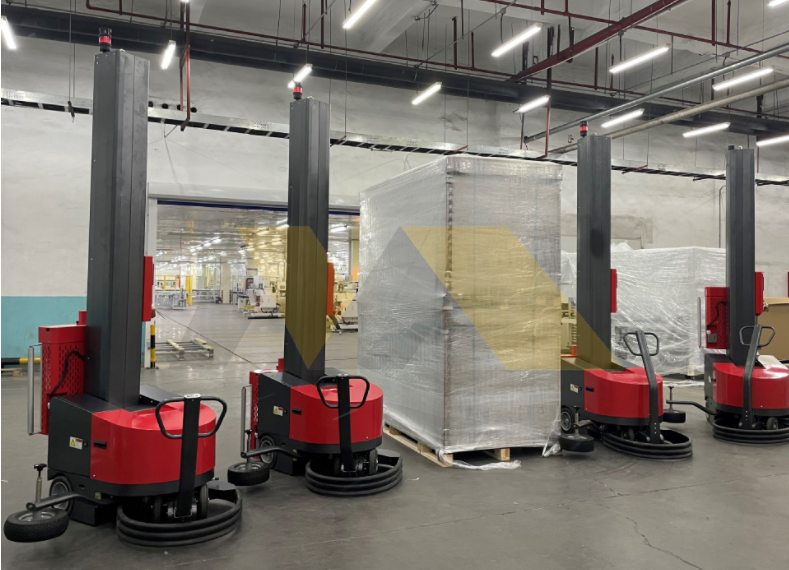Struggling with labor shortages and inconsistent pallet stacking? Discover how our automated palletizers1 solve these warehouse headaches.
A robotic palletizer automates box stacking through programmed movements. Single column units offer cost-effective palletizing starting under $60,000, boosting speed while eliminating human error. Ideal for mid-sized operations with limited space.
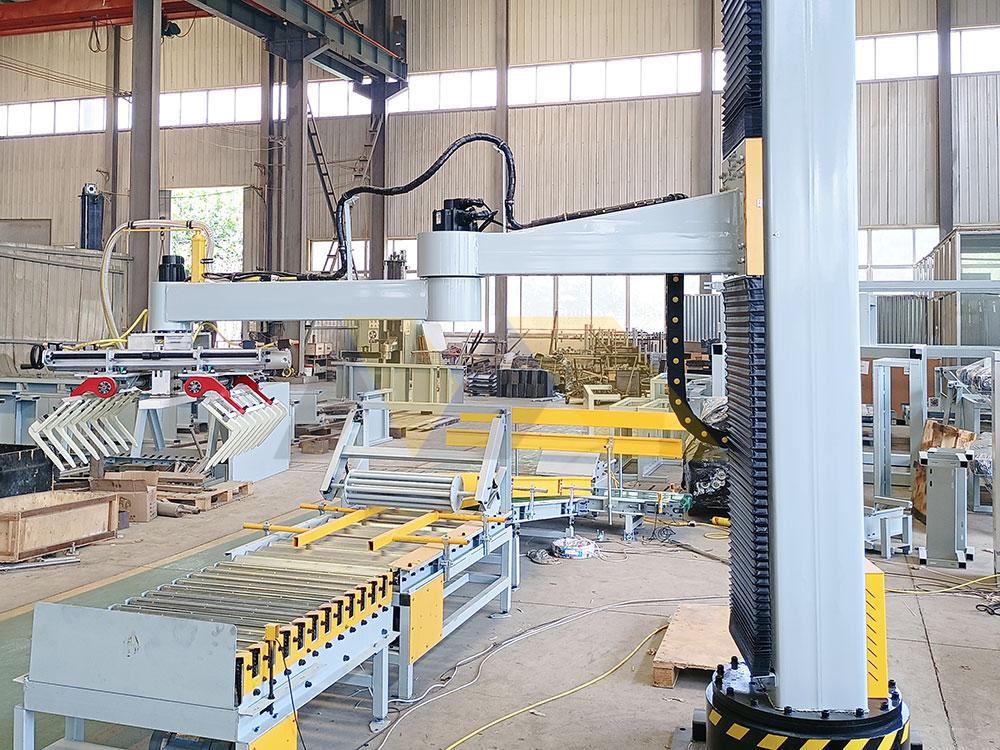
Operating our Chinese factory’s 5 production lines, I’ve seen automation solve global clients’ bottlenecks. For buyers like Lambert in Canada wanting quality and value – request custom quotes at https://mywaymachinery.com/contact/. Let’s explore your key questions.
How much does a robotic palletizer2 cost?
Pricing confusion often delays automation decisions. Robotic palletizers actually have transparent cost structures based on specifications.
Standard single column palletizers cost $50,000-$90,000. Custom automation solutions reach $150,000. Our China-manufactured units are 35% cheaper than European counterparts while matching CE safety standards – making quality accessible.
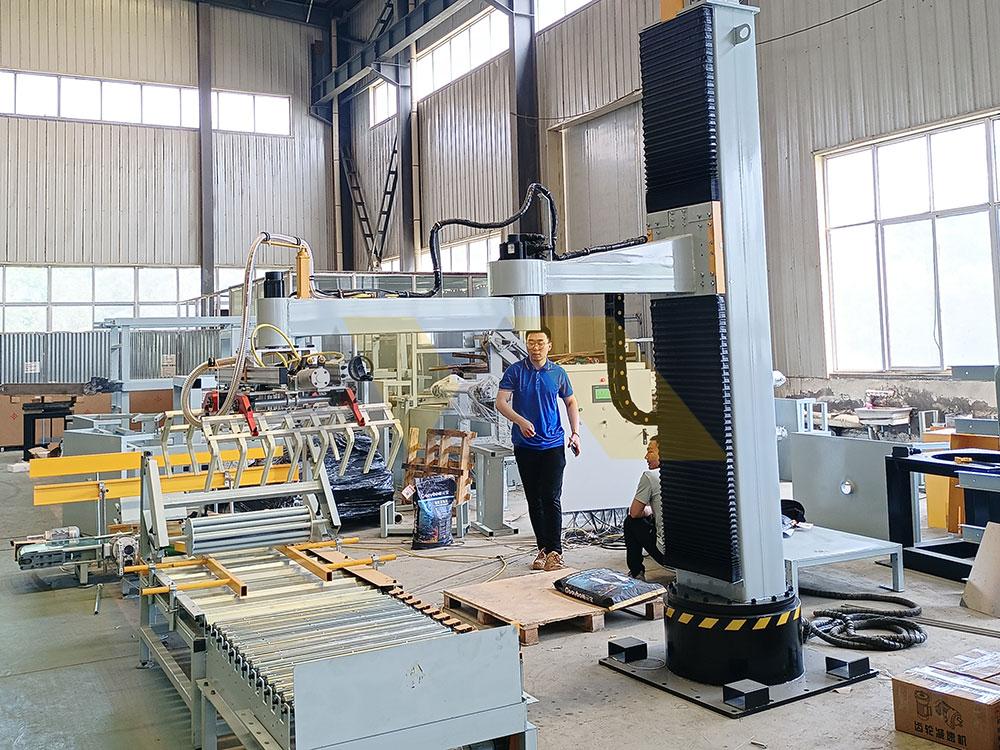
Three core factors determine final pricing:
Cost Determinants Analyzed
| Component | Economy Option | Premium Option | Price Impact |
|---|---|---|---|
| Structural Frame | Carbon steel | Stainless hybrid | +$19K |
| Control System | Basic PLC | AI vision integration | +$22K |
| Lifting System | Belt-driven | Servo linear motor | +$17K |
Customization drives final costs. For Canadian winters, we add specialized lubricants preventing cold-weather failures Lambert worries about.
Maximize your investment
See ROI in 14-18 months. A Singapore client saves $200,000 annually with our $72K model. Consider these savings:
- Labor reduction: 1 machine replaces 3 workers ($150K/year saved)
- Damage reduction: Consistent stacking lowers product losses by 40%
- Certification: All machines include ISO 9001 documentation eliminating forgery risks
Production line 3 specifically builds North America-bound units with CSA certification.
What is an automated palletizer?
Manual palletizing causes injuries and inconsistencies. Automated systems eliminate these operational pains.
Automated palletizers are robotic systems that stack products onto pallets using programmed patterns. They combine mechanical arms, conveyors, and PLC controls to handle loads up to 60kg non-stop with perfect accuracy.
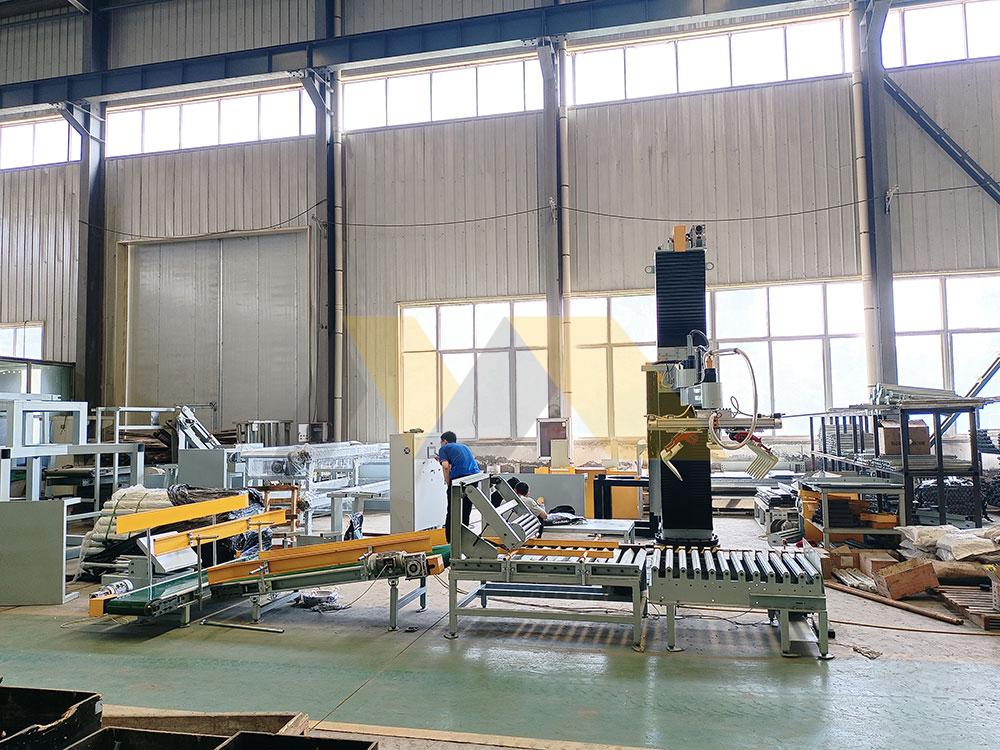
These systems transform warehouses through precision engineering:
Core Working Principle
- Infeed: Products move via conveyor to staging area
- Positioning: Sensors detect box dimensions
- Lifting: Column elevation positions stacking head
- Placement: Grippers drop load per programmed pattern
Our machines maintain ±0.5mm precision across 8-hour shifts – something human teams can’t match.
Injury Prevention Comparison
| Task | Workers Required | Injury Risk (%/yr) | Automation Risk |
|---|---|---|---|
| 25kg box lifting | 3 | 32% | 0% |
| Overhead stacking | 2 | 41% | 0% |
| Repetitive motion | 5 | 28% | 0% |
Japan’s electronics exporters use our units specifically for delicate components – eliminating $1M+ annual damage claims.
What is the fastest Palletized robot?
Bottlenecks at palletizing stations delay shipping. High-speed solutions exist for urgent throughput.
Advanced SCARA models achieve 50+ cycles/min under 15kg. New belt-free linear motor designs in our factory hit 20kg loads at 40 cycles/min – 70% faster than traditional systems.
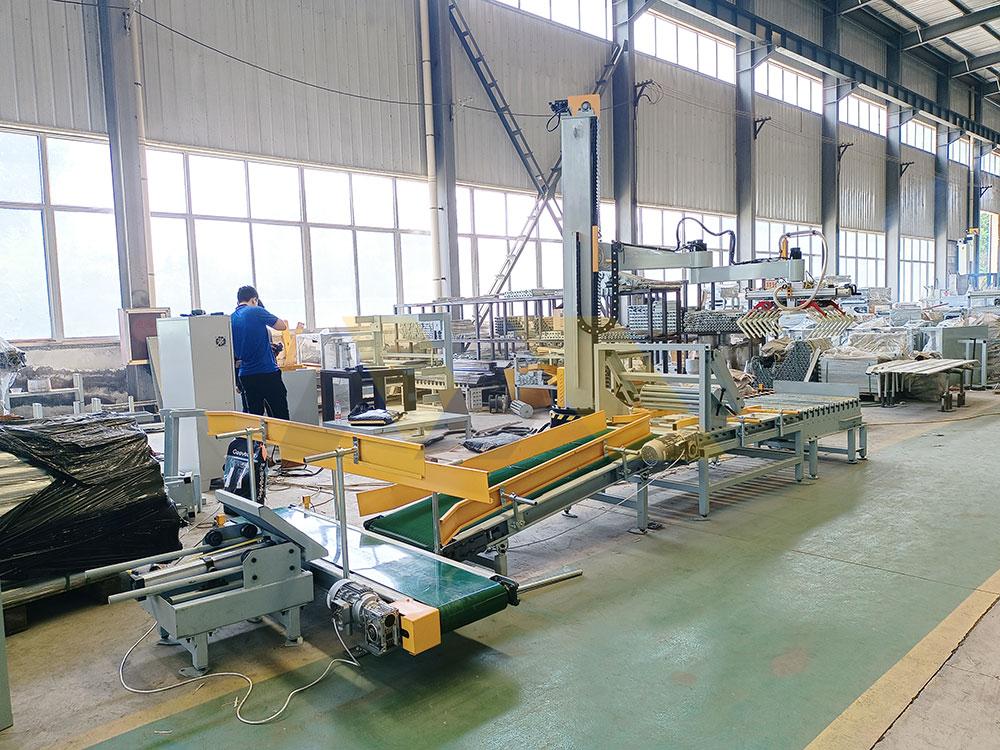
Achieving these speeds involves multi-layered innovation:
Speed Enhancement Technology
Motion Dynamics
- Resonance control: Counter-weights dampen vibration during direction changes
- Magnetic levitation: Linear motors remove friction points
- Predictive algorithms: Pre-calculate trajectories during transit
Component Engineering
- Carbon-fiber end effectors reduce inertia
- Vacuum generators with instant exhaust cut release time
- High-torque direct-drive servos replace gearboxes
Speed Comparison Table
| Model Type | Standard Speed | Enhanced Version | Performance Gain |
|---|---|---|---|
| Standard Column | 15 cycles/min | 28 cycles/min | +87% |
| Robotic Arm | 22 cycles/min | 45 cycles/min | +105% |
| Hybrid Delta/Column | 18 cycles/min | 40 cycles/min | +122% |
For clients like Lambert distributing beverages, our VeloCore model handles 38 cycles/min without pattern errors – critical during holiday rushes.
What are the different types of palletizers?
Choosing wrong palletizers causes inefficiency. Each type serves specific operational needs.
Main categories include robotic arms, column stackers, delta robots, and hybrid models. Single column units offer best value-for-space while articulated suits flexible layouts. Selection depends on payload, speed, and facility constraints.
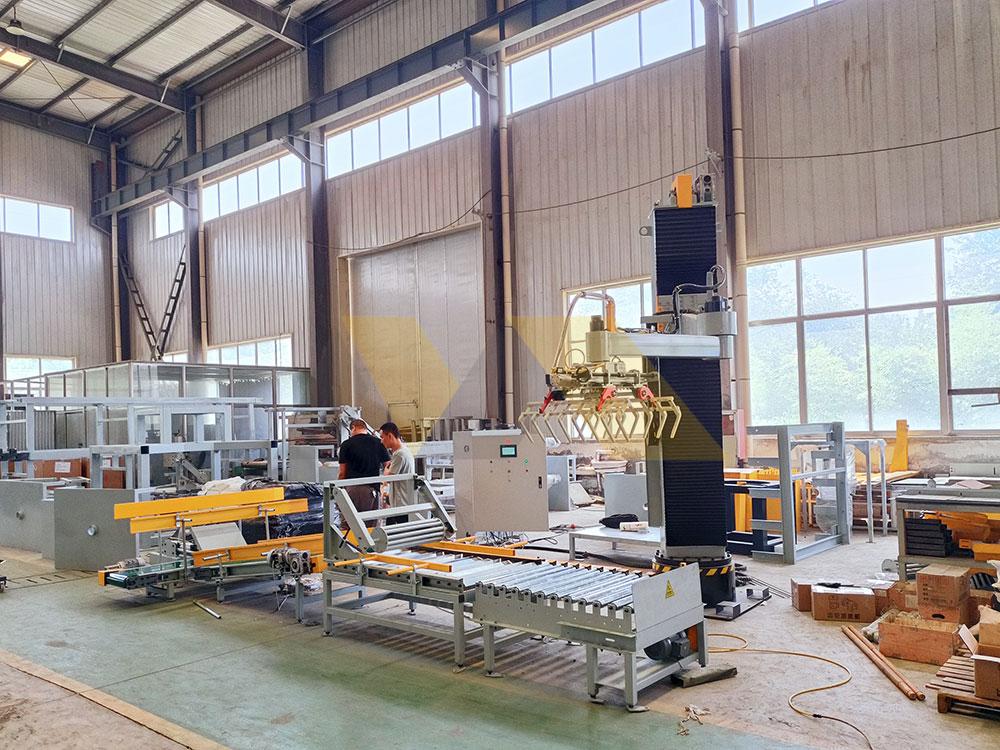
Here’s how to match machinery to your warehouse:
Palletizer Characteristics
| Type | Space Needed | Max Payload | Flexibility | Best For |
|---|---|---|---|---|
| Single Column | Compact | 60kg | Medium | Narrow aisles |
| Articulated Arm | Large | 300kg | High | Multi-product lines |
| Delta Robot | Small | 15kg | Very High | Light packaging |
| Hybrid Gantry | Moderate | 100kg | Custom | Special layouts |
Key Selection Criteria
- Facility Height: Column units need 4-5m clearance
- Pattern Changes: Robotic arms adapt instantly without downtime
- Sanitation: Our stainless units serve food facilities with wash-down capability
We recently engineered a suspended column palletizer for Tokyo client with 2m ceiling clearance – proving custom solutions conquer space constraints.
Conclusion
Transform your warehouse with automation tailored to your needs. Contact us at https://mywaymachinery.com/contact/ for custom palletizer solutions today.

